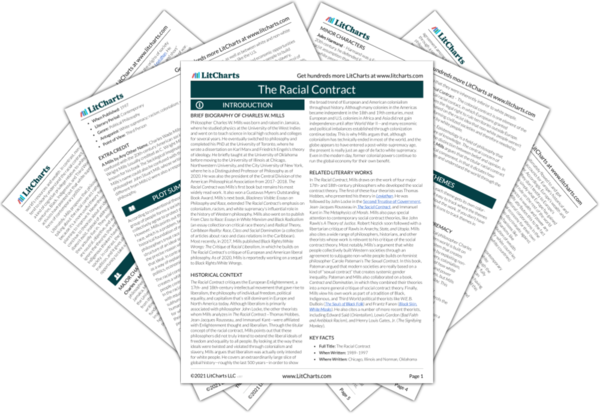Jean-Jacques Rousseau Quotes in The Racial Contract
It would be a fundamental error, then—a point to which I will return—to see racism as anomalous, a mysterious deviation from European Enlightenment humanism. Rather, it needs to be realized that, in keeping with the Roman precedent, European humanism usually meant that only Europeans were human. European moral and political theory, like European thought in general, developed within the framework of the Racial Contract and, as a rule, took it for granted.

Unlock explanations and citation info for this and every other The Racial Contract quote.
Plus so much more...
Get LitCharts A+
Jean-Jacques Rousseau Quotes in The Racial Contract
It would be a fundamental error, then—a point to which I will return—to see racism as anomalous, a mysterious deviation from European Enlightenment humanism. Rather, it needs to be realized that, in keeping with the Roman precedent, European humanism usually meant that only Europeans were human. European moral and political theory, like European thought in general, developed within the framework of the Racial Contract and, as a rule, took it for granted.

Unlock explanations and citation info for this and every other The Racial Contract quote.
Plus so much more...
Get LitCharts A+








